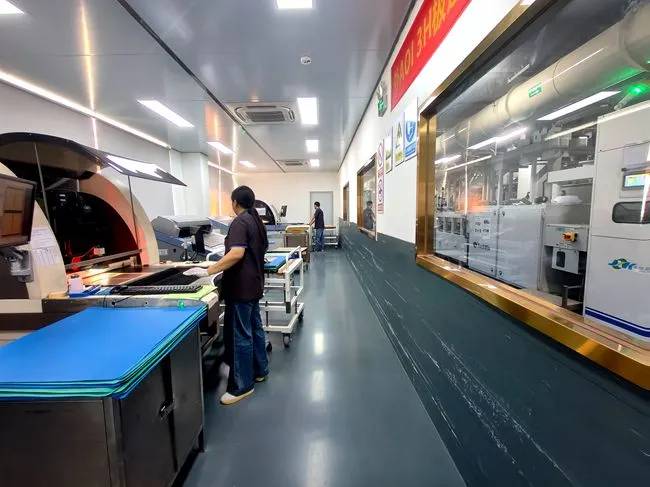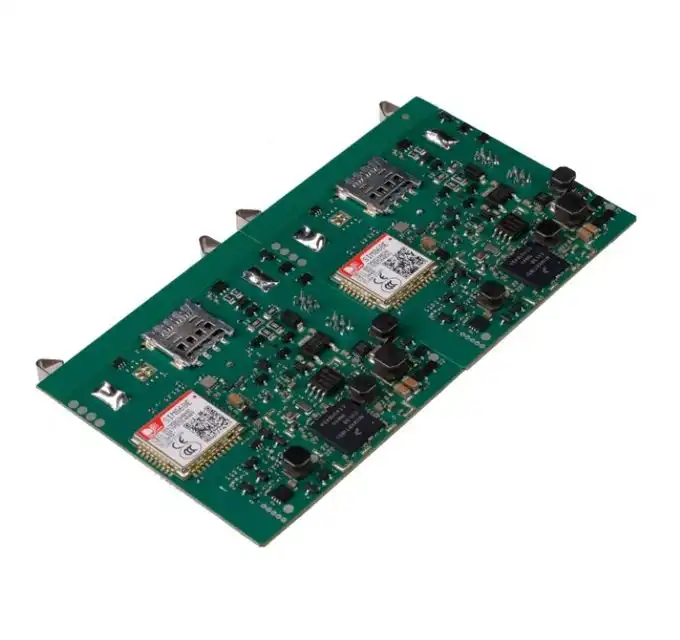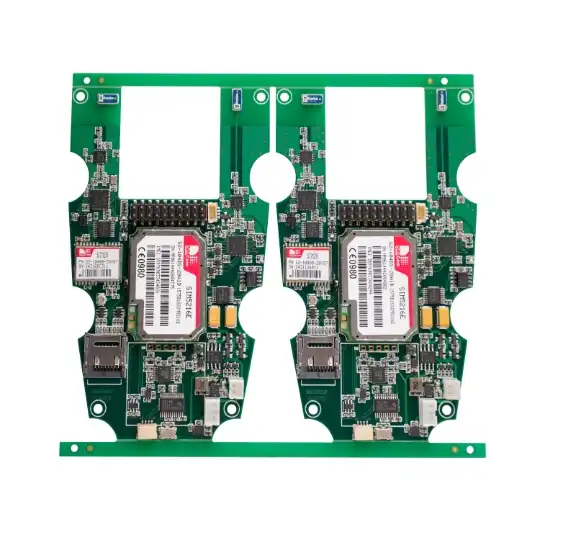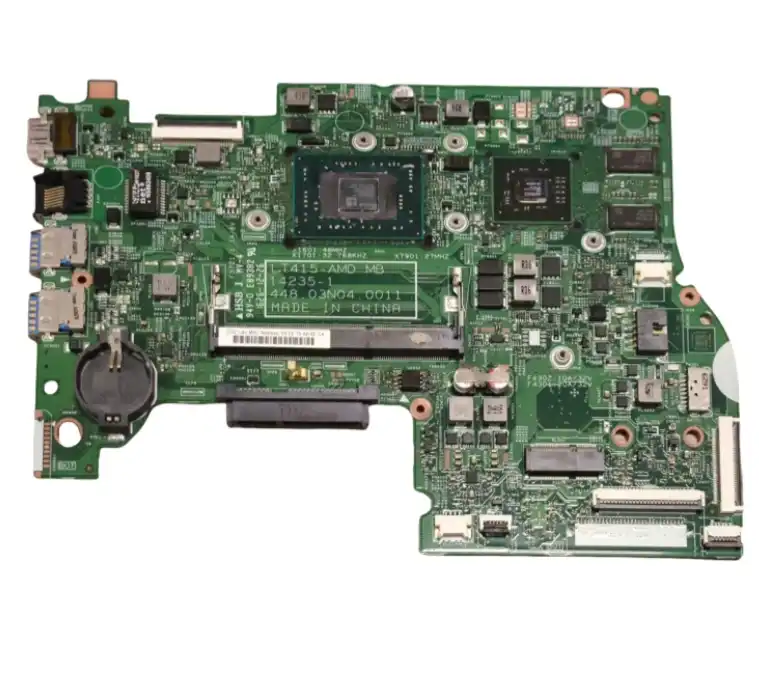The Advantages of Integrated PCB Manufacturing Services
One-stop PCB factories offer a comprehensive suite of services that cover the entire spectrum of PCB production. This integrated approach brings numerous benefits to electronics manufacturers, ranging from improved efficiency to enhanced quality control.
Streamlined Production Process
In a one-stop PCB factory, the entire production process is seamlessly integrated. From PCB design and fabrication to component sourcing and assembly, all stages are handled under one roof. This integration eliminates the need for multiple vendors and reduces the complexity of managing various suppliers. As a result, manufacturers can enjoy a more streamlined and efficient production process.
The streamlined approach significantly reduces lead times. With all services available in-house, there's no need to wait for components or PCBs to be shipped from one facility to another. This reduction in transit time and coordination efforts can dramatically speed up the overall production timeline, allowing manufacturers to bring their products to market faster.
Enhanced Quality Control
Quality control is a critical aspect of PCB manufacturing, and one-stop PCB factories excel in this area. By managing the entire production process in-house, these facilities can implement comprehensive quality control measures at every stage.
One-stop PCB factories typically employ advanced quality control technologies such as Automated Optical Inspection (AOI), X-ray inspection, and In-Circuit Testing (ICT). These tools allow for thorough inspection of PCBs at various stages of production, ensuring that any defects or issues are caught and addressed early in the process.
Moreover, the integrated nature of one-stop factories allows for better traceability. If an issue is identified, it's easier to trace it back to its source and implement corrective measures. This level of control and oversight is much harder to achieve when working with multiple vendors.
Cost-Effective Solutions
Working with a one-stop PCB factory can lead to significant cost savings. By consolidating all services under one roof, these factories can offer more competitive pricing due to economies of scale. They can purchase materials in bulk, optimize resource allocation, and reduce overhead costs associated with managing multiple vendors.
Additionally, the improved efficiency and reduced lead times translate directly into cost savings. Faster production means less time spent on each project, allowing manufacturers to take on more orders and increase their overall output. The reduction in logistics and coordination costs further contributes to the overall cost-effectiveness of working with a one-stop PCB factory.

Optimizing Design for Manufacturability (DFM) in One-Stop PCB Factories
One of the key advantages of working with a one-stop PCB factory is the opportunity to optimize designs for manufacturability. DFM is a crucial process that ensures PCB designs can be efficiently and reliably manufactured at scale.
Collaborative Design Process
In a one-stop PCB factory, design engineers work closely with manufacturing experts to refine PCB designs. This collaboration allows for early identification of potential manufacturing issues, ensuring that designs are optimized for production from the outset.
The design team can leverage the manufacturing team's expertise to make informed decisions about component placement, trace routing, and layer stack-up. This collaborative approach helps to avoid costly redesigns later in the process and ensures that the final design is both functional and manufacturable.
Advanced DFM Tools and Techniques
One-stop PCB factories often invest in advanced DFM software tools that can analyze designs for potential manufacturing issues. These tools can identify problems such as insufficient clearances, improper pad sizes, or violations of manufacturing rules.
By running DFM checks early and often throughout the design process, manufacturers can catch and correct issues before they become costly problems. This proactive approach to design optimization can significantly reduce manufacturing defects and improve overall yield rates.
Continuous Improvement through Feedback Loops
The integrated nature of one-stop PCB factories allows for effective feedback loops between manufacturing and design teams. As PCBs are produced, any issues or challenges encountered during manufacturing can be quickly communicated back to the design team.
This continuous feedback helps to refine and improve design practices over time. Designers can learn from real-world manufacturing experiences and incorporate these lessons into future designs, leading to increasingly optimized and manufacturable PCBs.
Leveraging Advanced Technologies in One-Stop PCB Factories
One-stop PCB factories are at the forefront of adopting and implementing advanced technologies in PCB manufacturing. These cutting-edge solutions contribute significantly to improved efficiency, quality, and cost-effectiveness.
Automation and Industry 4.0
Modern one-stop PCB factories are increasingly embracing automation and Industry 4.0 principles. Automated systems are used throughout the production process, from component placement to testing and inspection. This automation not only increases production speed but also improves accuracy and consistency.
Industry 4.0 technologies, such as Internet of Things (IoT) sensors and data analytics, allow for real-time monitoring of production processes. This enables quick identification and resolution of issues, predictive maintenance of equipment, and data-driven optimization of manufacturing processes.
Advanced Assembly Technologies
One-stop PCB factories often invest in advanced assembly technologies to handle increasingly complex PCB designs. These may include high-precision pick-and-place machines for accurate component placement, advanced reflow ovens for reliable soldering, and specialized equipment for handling challenging components like BGAs or fine-pitch devices.
These advanced technologies allow one-stop factories to handle a wide range of PCB assembly requirements, from simple single-layer boards to complex multi-layer designs with high-density components.
Cutting-Edge Testing and Inspection
Quality assurance is a critical aspect of PCB manufacturing, and one-stop factories employ a range of advanced testing and inspection technologies. These may include Automated Optical Inspection (AOI) systems for visual defect detection, X-ray inspection for checking hidden solder joints, and In-Circuit Testing (ICT) for functional verification.
Some factories are also adopting AI-powered inspection systems that can learn to identify defects more accurately over time. These advanced testing capabilities ensure that PCBs produced in one-stop factories meet the highest quality standards.
Conclusion
Working with a one-stop PCB factory offers numerous advantages for electronics manufacturers. The integrated approach streamlines production, enhances quality control, and optimizes costs. By leveraging advanced technologies and fostering collaboration between design and manufacturing teams, one-stop PCB factories can deliver high-quality PCBs more efficiently and cost-effectively than traditional fragmented manufacturing approaches.
When selecting a PCB manufacturer or supplier, consider the benefits of working with a one-stop factory. The time and cost savings, coupled with improved quality and efficiency, make one-stop PCB factories an attractive option for electronics manufacturers across various industries. As technology continues to advance, these integrated factories are well-positioned to meet the evolving needs of the electronics industry, offering innovative solutions and maintaining a competitive edge in the market.
FAQ
What services does a one-stop PCB factory typically offer?
A one-stop PCB factory typically offers comprehensive services including PCB design, fabrication, component sourcing, assembly, and testing. They provide full turnkey solutions from prototype to mass production.
How does a one-stop PCB factory ensure quality?
One-stop PCB factories implement rigorous quality control measures throughout the production process. This includes X-ray inspection, AOI testing, and 100% functional validation to ensure zero-defect delivery.
Can a one-stop PCB factory help optimize my PCB design?
Yes, many one-stop PCB factories offer DFM/DFA optimization services. Their expert engineering teams can help reduce design risks and BOM costs, ensuring your PCB design is optimized for manufacturing.
Experience the Benefits of One-Stop PCB Manufacturing | Ring PCB
At Ring PCB, we offer comprehensive one-stop PCB and PCBA services that streamline your production process and optimize costs. Our state-of-the-art factory combines advanced manufacturing technologies with expert engineering to deliver high-quality, cost-effective PCB solutions. From prototype to mass production, we provide full turnkey services including PCB fabrication, component sourcing, SMT assembly, and rigorous quality control. Experience the efficiency and reliability of working with a leading one-stop PCB manufacturer. Contact us at [email protected] to learn how we can support your PCB production needs.
References
1. Johnson, M. (2022). "The Evolution of PCB Manufacturing: One-Stop Solutions for Modern Electronics." Journal of Electronics Manufacturing, 15(3), 78-92.
2. Smith, A. & Brown, B. (2021). "Cost-Benefit Analysis of Integrated PCB Production Facilities." International Journal of Industrial Engineering, 29(2), 145-160.
3. Lee, C. et al. (2023). "Quality Control Advancements in One-Stop PCB Factories." IEEE Transactions on Electronics Packaging Manufacturing, 46(1), 33-48.
4. Thompson, R. (2022). "Time-to-Market Reduction Through One-Stop PCB Manufacturing." Electronics Production and Test, 18(4), 112-125.
5. Garcia, S. & Wang, L. (2023). "Design for Manufacturability in Integrated PCB Facilities: Best Practices and Case Studies." Journal of Circuit World, 49(2), 201-218.






